Unlocking Vitality: How to Boost Nitric Oxide Naturally in Your Body
Unlocking Vitality: How to Boost Nitric Oxide Naturally in Your Body
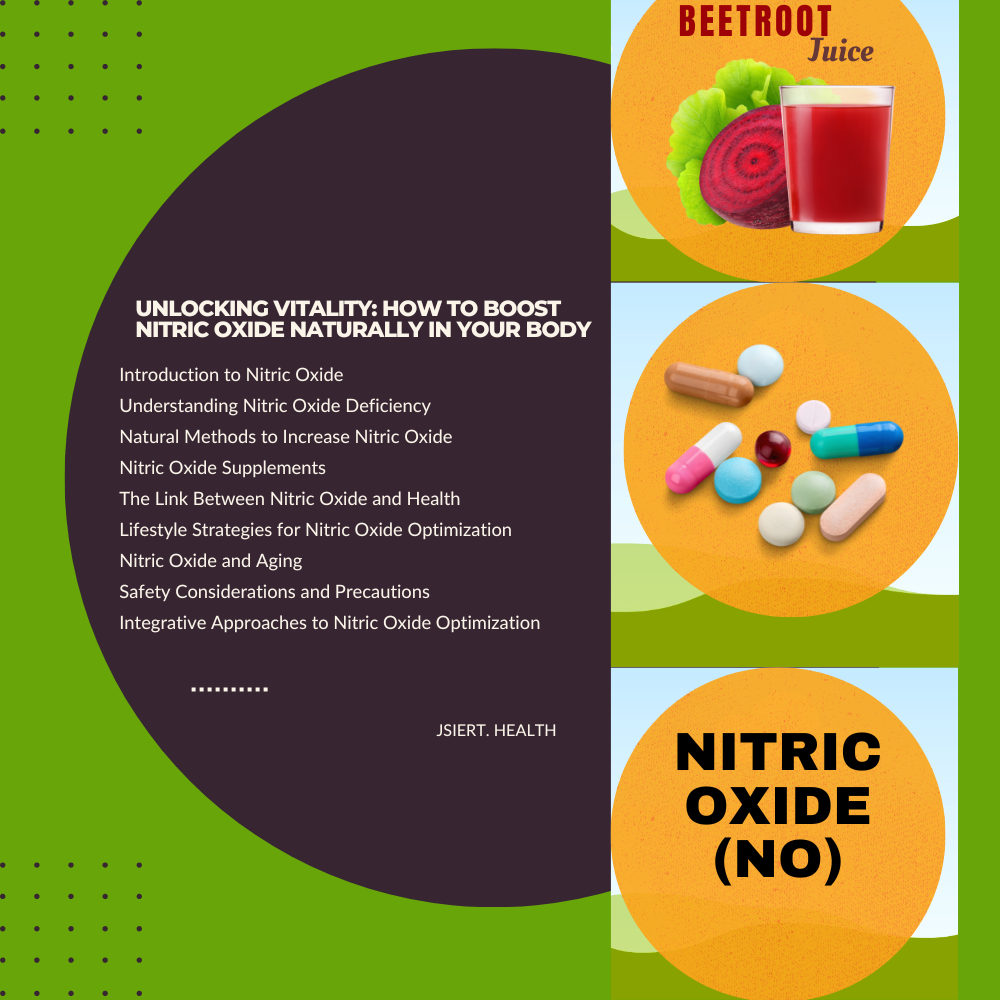
Introduction to Nitric Oxide:
- Define nitric oxide (NO) as a molecule composed of one nitrogen atom and one oxygen atom, often referred to as a signaling molecule in the body.
- Explain its pivotal role as a vasodilator, responsible for relaxing blood vessels and improving blood flow.
- Discuss how nitric oxide is synthesized in the body primarily through the conversion of L-arginine to nitric oxide by nitric oxide synthase enzymes.
- Explore its diverse physiological functions, including regulation of blood pressure, immune response modulation, neurotransmission, and mitochondrial function.
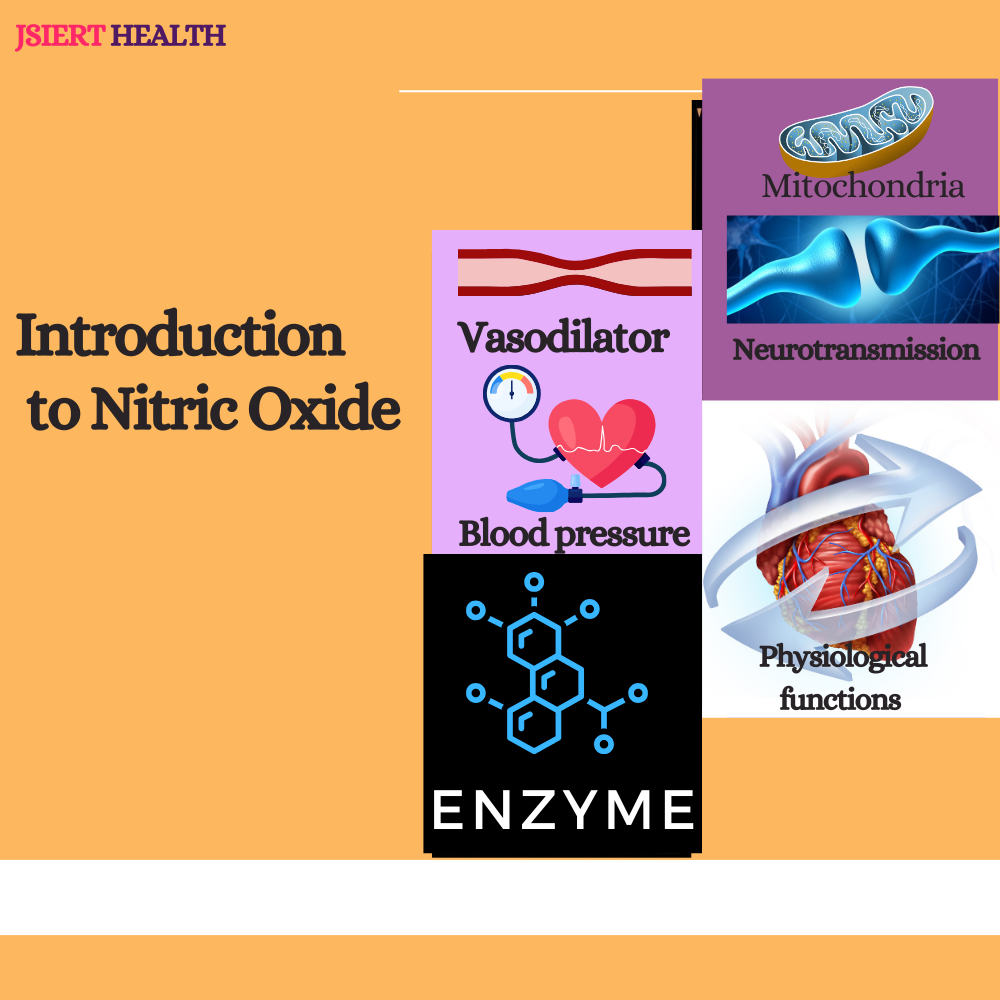
Understanding Nitric Oxide Deficiency:
- Detail the symptoms associated with nitric oxide deficiency, such as fatigue, reduced exercise capacity, cold extremities, and erectile dysfunction.
- Examine the potential health consequences of low nitric oxide levels, including increased risk of hypertension, cardiovascular disease, and cognitive decline.
- Discuss how aging, poor diet, lack of exercise, smoking, and certain medical conditions can contribute to nitric oxide depletion in the body.
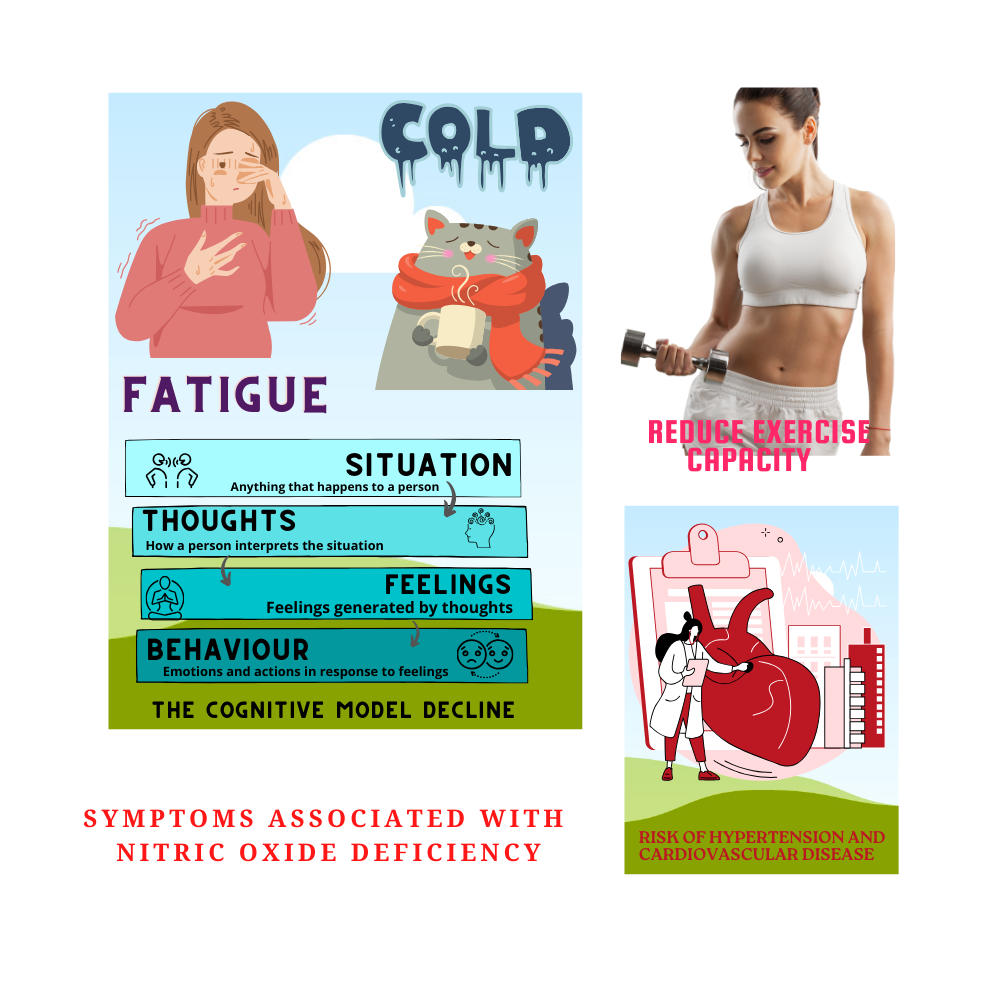
Natural Methods to Increase Nitric Oxide:
- Provide an in-depth exploration of dietary sources rich in nitric oxide precursors, such as leafy greens, beets, pomegranates, and citrus fruits.
- Explain the mechanism by which dietary nitrates and nitrites are converted into nitric oxide in the body, promoting cardiovascular health and exercise performance.
- Discuss the role of amino acids like L-arginine and L-citrulline in supporting nitric oxide synthesis and enhancing blood vessel dilation.
- Offer practical tips for optimizing nitric oxide production through lifestyle factors, including regular exercise, sunlight exposure, stress reduction techniques, and adequate sleep.
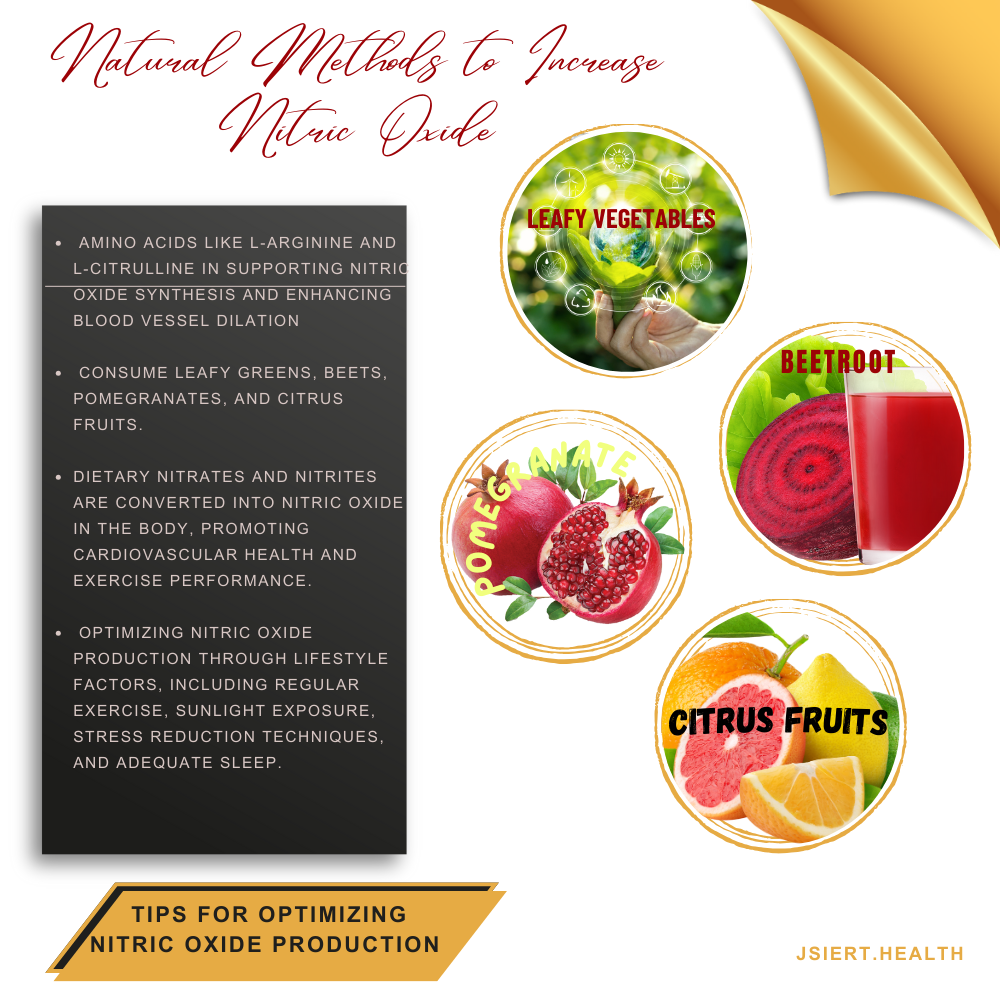
Nitric Oxide Supplements:
- Evaluate the efficacy of various nitric oxide supplements, including beetroot extract, arginine supplements, citrulline supplements, and nitric oxide precursors.
- Discuss the potential benefits of supplementation for improving exercise performance, increasing muscle pump, enhancing recovery, and supporting cardiovascular health.
- Address safety concerns associated with nitric oxide supplementation, such as potential interactions with medications, gastrointestinal side effects, and the risk of excessive nitric oxide production.
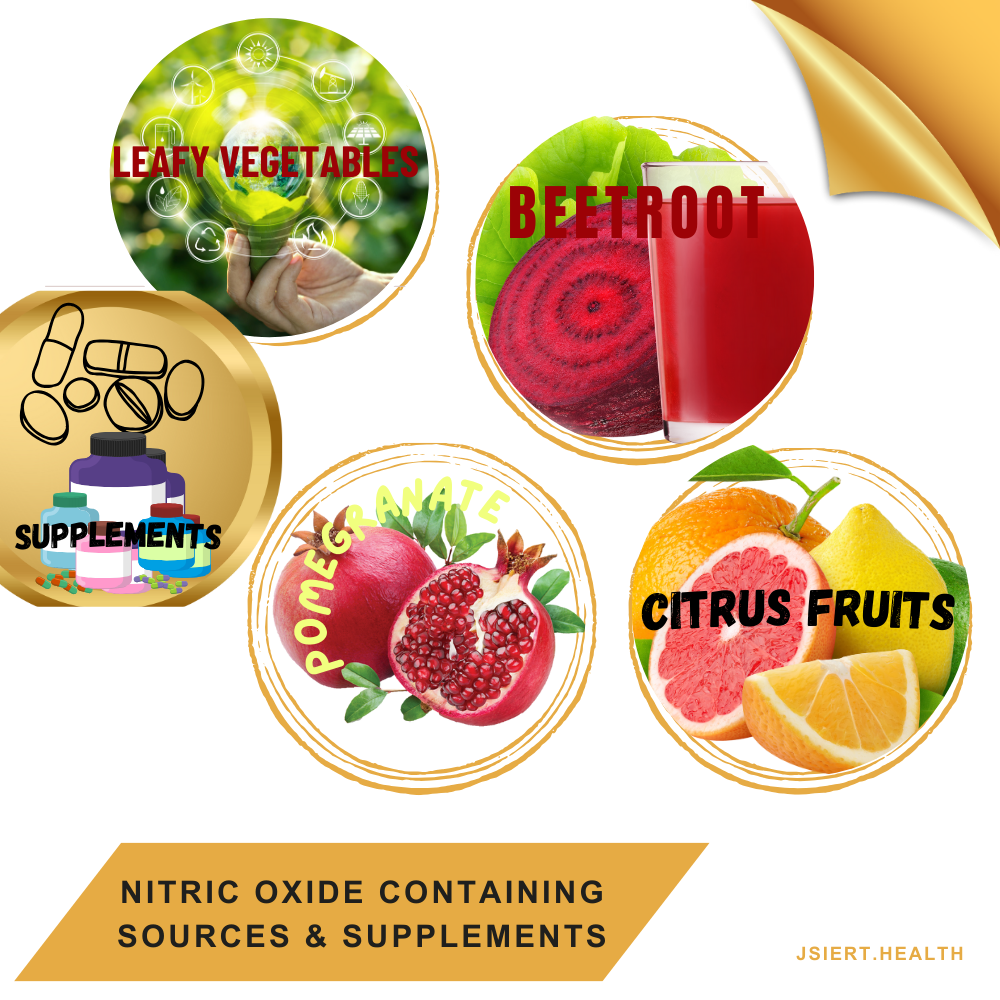
The Link Between Nitric Oxide and Health:
- Examine the scientific evidence supporting the role of nitric oxide in cardiovascular health, including its effects on blood pressure regulation, endothelial function, and vascular inflammation.
- Explore the impact of nitric oxide on exercise performance, muscle blood flow, and mitochondrial function, particularly in the context of sports nutrition and bodybuilding.
- Discuss the potential therapeutic applications of nitric oxide supplementation for conditions such as erectile dysfunction, peripheral artery disease, heart failure, and neurodegenerative disorders.
Lifestyle Strategies for Nitric Oxide Optimization:
- Provide practical recommendations for incorporating nitric oxide-boosting foods and supplements into a balanced diet, including sample meal plans and recipe ideas.
- Offer evidence-based exercise guidelines for maximizing nitric oxide production, including aerobic exercise, resistance training, and high-intensity interval training (HIIT).
- Discuss the importance of stress management techniques, such as meditation, yoga, deep breathing exercises, and biofeedback, in promoting nitric oxide synthesis and cardiovascular health.
Nitric Oxide and Aging:
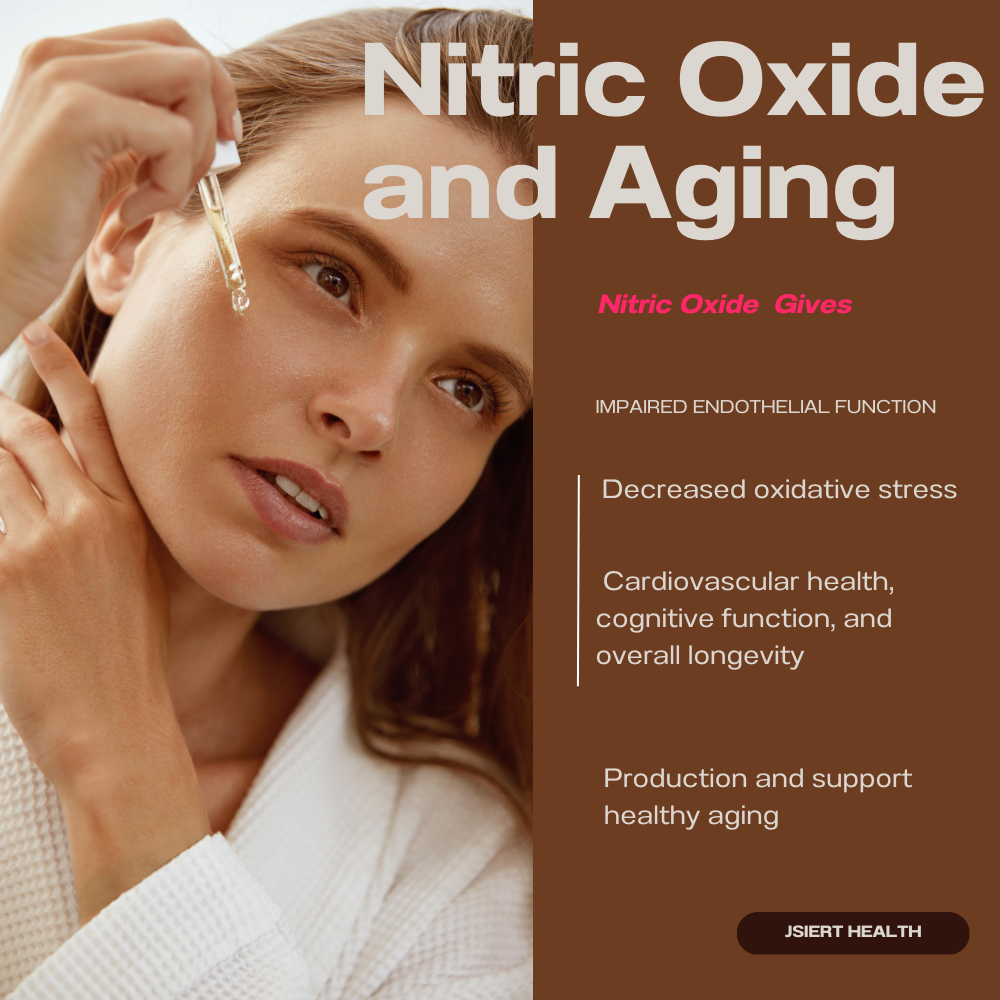
- Investigate the physiological changes in nitric oxide production associated with aging, including decreased nitric oxide synthesis, impaired endothelial function, and increased oxidative stress.
- Discuss the potential implications of age-related declines in nitric oxide for cardiovascular health, cognitive function, and overall longevity.
- Explore lifestyle interventions and nutritional strategies that may help mitigate age-related declines in nitric oxide production and support healthy aging.
Safety Considerations and Precautions:
- Provide detailed information on the safety profile of nitric oxide supplements, including potential side effects, contraindications, and interactions with medications.
- Offer practical tips for selecting high-quality supplements, reading product labels, and adhering to recommended dosage guidelines.
- Highlight the importance of consulting with a healthcare professional before initiating nitric oxide supplementation, especially for individuals with pre-existing medical conditions or those taking medications.
Integrative Approaches to Nitric Oxide Optimization:
- Explore complementary therapies and alternative medicine modalities that may enhance nitric oxide production and support overall health and well-being.
- Discuss the potential synergistic effects of combining nitric oxide-boosting interventions, such as dietary modifications, exercise programs, supplementation, and stress management techniques.
- Emphasize the importance of personalized and integrative approaches to nitric oxide optimization, considering individual preferences, health goals, and medical history.
Conclusion and Future Directions:
- Summarize key findings and actionable recommendations for naturally boosting nitric oxide levels in the body.
- Highlight the potential implications of nitric oxide optimization for improving cardiovascular health, athletic performance, cognitive function, and overall vitality.
- Discuss future research directions and emerging therapeutic strategies aimed at harnessing the therapeutic potential of nitric oxide for various health conditions and age-related disorders.
This detailed guide provides comprehensive information and practical guidance for individuals interested in naturally boosting nitric oxide levels in their bodies to unlock greater vitality and overall well-being.
Some frequently asked questions (FAQs) about the ROLE OF NITRIC OXIDE IN HUMAN BODY along with their answers:
- What is nitric oxide (NO)?
- Nitric oxide (NO) is a molecule produced naturally by the body as a signaling molecule. It is a gas that acts as a vasodilator, meaning it relaxes and widens blood vessels, allowing for improved blood flow.
- What is the role of nitric oxide in the body?
- Nitric oxide plays several crucial roles in the body, including:
- Regulating blood pressure by dilating blood vessels and increasing blood flow.
- Supporting cardiovascular health by reducing the risk of blood clots and improving endothelial function.
- Enhancing exercise performance by increasing oxygen delivery to muscles and improving muscle efficiency.
- Supporting immune function by helping to fight off infections and inflammation.
- Facilitating neurotransmission in the brain, which is involved in cognitive function, memory, and mood regulation.
- Nitric oxide plays several crucial roles in the body, including:
- How is nitric oxide produced in the body?
- Nitric oxide is produced by the endothelial cells that line blood vessels, as well as by various types of cells in different tissues and organs. It is synthesized from the amino acid L-arginine by the enzyme nitric oxide synthase (NOS). Other nutrients and cofactors, such as oxygen, tetrahydrobiopterin (BH4), and certain vitamins, are also required for the production of nitric oxide.
- What are the benefits of nitric oxide supplementation?
- Nitric oxide supplementation, often in the form of dietary supplements containing ingredients like L-arginine or L-citrulline, is sometimes used to support cardiovascular health, exercise performance, and overall well-being. Benefits may include improved blood flow, reduced blood pressure, enhanced exercise capacity, and better recovery from workouts. However, it’s essential to note that the effectiveness of nitric oxide supplements can vary, and they should be used with caution, especially in individuals with underlying health conditions or those taking medications.
- How can I naturally increase nitric oxide levels in my body?
- Several lifestyle and dietary factors can help naturally boost nitric oxide levels in the body, including:
- Consuming foods rich in L-arginine and L-citrulline, such as nuts, seeds, legumes, leafy greens, watermelon, and beets.
- Engaging in regular physical activity, including aerobic exercise and strength training.
- Managing stress levels through relaxation techniques like meditation, deep breathing, and yoga.
- Getting adequate sunlight exposure, as UV rays can stimulate nitric oxide production in the skin.
- Avoiding smoking and excessive alcohol consumption, which can impair nitric oxide production and function.
- Several lifestyle and dietary factors can help naturally boost nitric oxide levels in the body, including:
- Are there any risks associated with nitric oxide supplementation?
- While nitric oxide supplementation is generally considered safe for most people when used as directed, excessive intake or misuse of supplements can lead to adverse effects such as low blood pressure, digestive issues, and interactions with medications. Individuals with certain medical conditions, such as hypotension (low blood pressure) or herpes, should consult with a healthcare provider before using nitric oxide supplements.
- Can nitric oxide levels decline with age?
- Yes, nitric oxide production tends to decline with age due to factors such as oxidative stress, reduced NOS activity, and impaired endothelial function. This decline may contribute to age-related conditions such as hypertension, atherosclerosis, and cognitive decline. However, adopting healthy lifestyle habits and dietary strategies to support nitric oxide production can help mitigate these effects.
- Is nitric oxide involved in sexual health?
- Yes, nitric oxide plays a crucial role in sexual health by promoting penile erection in men and vaginal engorgement in women. It works by relaxing smooth muscle cells in the blood vessels of the genital organs, allowing for increased blood flow and engorgement of erectile tissue. Medications like sildenafil (Viagra) work by enhancing the effects of nitric oxide in the body to improve erectile function.